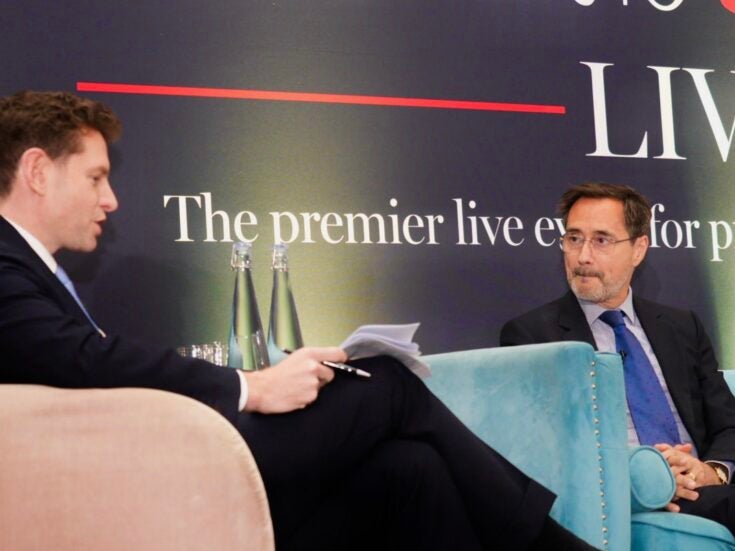
So say the people of Ukraine, who have found two decades of capitalism not to their taste. Stephen Hill after a trip there considers whether its future lies east or west
THE IMMORALITY OF the bankers’ greed, which continues despite the global problems they have created, and the stupidity of the politicians in the West who bailed them out without conditions, and who in Europe brought in an utterly unworkable monetary union, are not easy issues to address.
They must be, however, in order to understand the human dimensions of this man-made crisis in its relationship to the Seven Deadly Sins, of mainly greed and bonus-fed gluttony. Indeed, the editor asked me to write on this some two years ago, but I was lost for words…
Travelling in the Ukraine recently, I came across a fascinating survey of how Ukrainians feel about six key issues, comparing their attitudes in 1982 to 2011, which raised moral issues of capitalism versus communism, a stand-off I thought was over and dusted in 1991.
1981 was when Reaganomics and Thatcherism were becoming established – ‘the Greed Decade’ – with the side-effect of credit-driven bonuses that heralded the current crisis of excess. Communism was in its last decade and simply couldn’t keep up with Reaganomics and Star Wars, and collapsed in 1991 when Thatcher bolstered Gorbachev and his Perestroika campaign. It was at this point that the Ukraine became independent.
The survey asked the following questions, and the percentages of the answers for the two years in question were as follows. (Bear in mind that 1982 and 2011 are thirty years apart, the last twenty of which have seen Ukraine as an independent country.)
1982 2011
1. Achieve success by honest work 87 23
2. Interested mainly in buying goods 42 57
3. Concerned only with personal well-being 20 68
4. Condemnation of bribery 72 54
5. Consideration always to help others 84 33
6. Take initiative at work and public life 73 29
Source: Sophia Institute of Social Research/Kyiv Post 19/8/11
THE RESULTS ARE quite startling: amongst the conclusions we can headline the following:
> The psychological problems in moving a workforce from a state-run economy towards a market economy are huge, especially if there is little or no time for preparation or training on the issue.
> Quasi-capitalism, in these circumstances, slowly delivers a better quality of goods and services, but only up by about 3.3% per annum on average.
> Capitalism, without the safeguards of the total co-operative, makes people get on their bike and look after themselves first and foremost, but at some expense to social cohesiveness.
> Capitalism and its market disciplines slowly remove the embedded bribery and corruption of the state-system, but only very slowly as the old ways persist as the former bosses, practices and structures are still in place. This survey has nothing to do with the widespread western corruption behind the subprime and banking crisis: both systems embrace too much corruption by individuals, the one institutional and the other structural.
> People think more of themselves than society as a whole under capitalism – don’t we know just that in our post-Christian western society in the period of this survey, from the Greed to the Outright-Greed decades?
> Capitalism, when it is shallow, takes a long time to cultivate motivation, and in fact is widely perceived to be a much worse environment for personal initiative, which points to a lack of getting the message across and putting appropriate incentives and structures in place, but it was these very incentives in the west which were abused and brought capitalism to its current crisis.

Interestingly, another survey on the Ukraine showed that communism is positively missed more than capitalism is positively embraced, and that’s after twenty years of independence. The question was ‘Do you regret the breakup of the USSR?’
%
• ‘Yes, I regret it’ 47.4
• ‘No, I don’t regret it’ 29.7
• ‘I’m indifferent’ 10.4
• ‘Difficult to say’ 12.5
Source: Institute of Sociology of the National Academy of Sciences of Ukraine/Kyiv Post 19/8/11
This survey appears to indicate a degree of national vacillation between an East and West orientation; interestingly, the very name Ukraine means living ‘on the edge’, between Europe and Eurasia on the all-important east-west axis.
This puts the Ukraine, with a landmass the size of France but with only two-thirds the population at 42 million, in a difficult geopolitical spot. Whereas Poland clearly sees its future as European and not Russian, the Ukraine sees its future as an independent nation that is friends with Russia but is also associated with Europe.
EVEN IN WORLD War Two, Ukraine welcomed the Nazis as being anti-Russia, and when Russia led the defeat of Hitler in 1945, Ukraine found itself comfortably ensconced with the victors in the USSR for the next forty-five years. And so the survey shows there is still a very pro-Russian sympathy to this day, which begs the question of whether the market economy will ever be effectively implemented or remain only half-implemented, while many major corporations are controlled by Monopolygarcks, which is today’s actuality.
Now Ukraine has a clear choice to make, however, which will not be easy: PM Yanukovych is travelling now in New York and then on to Moscow, as he opts either for the Deep and Comprehensive Free Trade Agreement (DCFTA) with the EU and WTO status or for the Moscow-led Customs Union, as they are mutually exclusive. He just has to choose one or the other, either affiliation to a $14 trillion market of 500 million consumers or a $2 trillion market of 170 million consumers, but with cheaper gas prices.
Meanwhile, the EU is not doing anyone any favours with its increasingly unworkable dream of monetary union, and needless to say the euro is now a joke to the east of its own wretched zone, and the sooner western Europe gives up this absurd experiment the better it will be for building a confederacy of independent nation states built on the mutual respect engendered by common trade and defence, perhaps even with a hard-euro core of the Original Six, if that’s what suits them.
This could become a truly united Europe that could work democratically and be a real and civilised force in the world, and the best way to bring Eastern Europe in from the cold.
AND THE MORAL dilemma? If capitalism continues on its path of greed and corruption established in the 1980s and which exploded in 2008 into wholesale bankruptcy, its eventual collapse is all but inevitable, and may be even closer to hand than is generally appreciated. All attempts by western governments to re-establish some measures to curb what Keynes’ termed its ‘animal spirits’ have failed or proven inadequate for the task, whether it’s the Vickers Report or Basle III or the EBA’s so-called Stress Tests or regulatory measures or public exhortations to moderation
Meanwhile, bankers are again drawing their huge bonuses, even from taxpayer-supported banks that are still bust and the politicians continue to load the taxpayers up with yet more debt piled up on already unsustainable levels of debt – another $2.4 trillion in the US and a mooted $2.5 trillion leveraging up of the EFSF – as they have nowhere else to turn to, other than to the printing presses.
How the great Russian bear, with the unreconstructed ex-KGB Putin as its keeper until 2024, must be laughing as he enjoys his natural honeypots and as his paws get ready to tighten their grip once again on the taps of those oil and gas spigots…
Communism was bankrupted in 1991, and again in 1998 by unsustainable debt, through its incompetence, but now it looks like capitalism is being bankrupted by its own greed and gluttony, the sins of excess no less: in Dante’s Purgatory, such sinners were bound face down to the earth for having dwelt too long on earthly things – maybe someone should tell the FSA!
It truly is beginning to look like the end of an epoch, brought about by uncontrolled moral quagmires, but who will have the last laugh?







